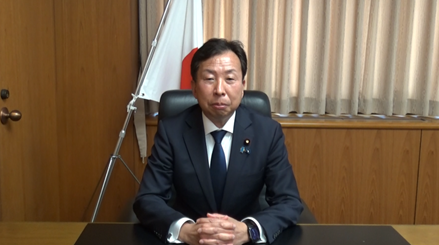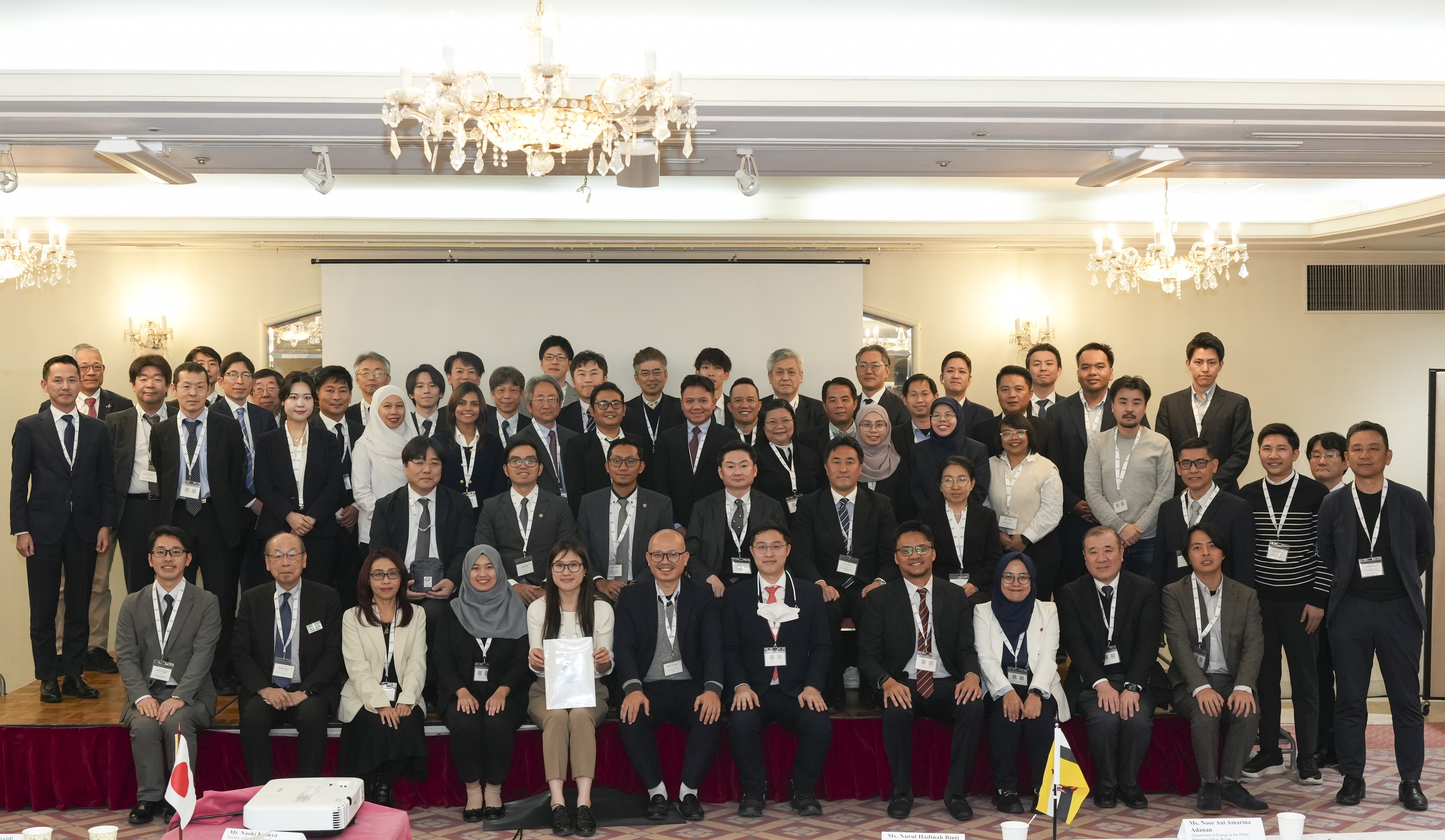- Home
- News Releases
- Back Issues
- February FY2025
- 7th CEFIA Government-Private Forum Held - First CEFIA Forum in Japan -
7th CEFIA Government-Private Forum Held - First CEFIA Forum in Japan -
February 14, 2025
On Thursday, February 13, 2025, the 7th CEFIA Government-Private Forum was held in Kobe City, Hyogo Prefecture, and Mr. Ogushi Masaki, State Minister of Economy, Trade and Industry, delivered opening remarks via a video message.
The forum was attended by representatives from the Japanese and ASEAN governments, businesses, financial institutions, and other organizations, who made briefings on the progress made in flagship projects for introducing clean energy technologies to the ASEAN region, explained Japan’s hydrogen and ammonia policies, launched new flagship project in the fields of hydrogen and ammonia, and explained Japan’s advanced technologies and initiatives, in particular, regarding perovskite-type solar cells, carbon dioxide capture, utilization and storage (CCUS), and transition finance. In addition, participants held active discussions on the future directions of government-private collaboration.
Following the forum, opportunities for ASEAN government officials to visit facilities related to hydrogen and ammonia and to network with Japanese companies were also arranged.
1. The 7th CEFIA Government-Private Forum
CEFIA (Cleaner Energy Future Initiative for ASEAN) is an initiative proposed by the Government of Japan to promote the dissemination of decarbonization technologies and the establishment of related policies and systems under the leadership of businesses with the aim of introducing clean energy technologies in the ASEAN region. It began in September 2019.
The 7th CEFIA Government-Private Forum was held on February 13, 2025. This was the first time for the forum to be held in Japan (Kobe City), with participants from governments, businesses, and financial institutes of Japan and ASEAN countries. At the forum, representatives of participating companies and industrial associations engaging in specific projects (flagship projects) that have been conducted under CEFIA made briefings on the progress made in the projects and future perspectives thereof. In addition, after introducing Japan’s hydrogen and ammonia policies, a new flagship project in the fields of hydrogen and ammonia was launched as an additional cooperation project for the forum. Moreover, as Japanese advanced technologies and *initiatives, perovskite-type solar cells, CCUS, and transition finance were introduced, and participants held active discussions on the future directions of government-private collaboration.
Following the forum, opportunities for ASEAN government officials to visit facilities related to hydrogen and ammonia near the venue of the forum were arranged in order to facilitate an understanding of Japan’s technologies for hydrogen and ammonia. They were also provided the opportunity to network with Japanese companies, taking advantage of the forum as an occasion to further enrich exchange and understanding between those involved in both Japan and ASEAN.
2. Opening Remarks from State Minister Ogushi
At the beginning of the forum, State Minister Ogushi delivered remarks via a video message as a representative of the Government of Japan. At the beginning of his remarks, he stated the importance of decarbonization across the Asian region to achieve global climate goals. Based on this, he also stated that Japan will promote decarbonization in Asia in light of the agreement reached at the Asia Zero-Emission Community (AZEC) Leaders Meeting held in the Lao PDR in October 2024. Finally, he stressed the significance of linking CEFIA’s efforts with AZEC to further promote decarbonization of the region.

3. Forum Highlights
Session Ⅰ: Overview of Flagship Projects
Briefings were made on the progress in the following flagship projects that CEFIA has been working on to introduce decarbonizing technologies: RENKEI (RENKEI Control: IoT-based energy efficiency through power optimization at factories, etc.), ZEB (Net- Zero Energy Buildings), SteelEcosol (energy saving at steel plants by introducing Japan’s outstanding energy-saving technologies), highly-efficient air-conditioning systems (introduction of AC systems striking a balance between energy saving and comfort), biochar (utilization of biochar to store carbon dioxide generated from biomass), and microgrids (introduction of an energy management system that integrates renewable energy and storage batteries ).
Session Ⅱ: Cross-cutting field in public and private finance
Explanations were given on cross-cutting initiatives that are important among all the projects, including mobilizing financing for decarbonization projects, avoided emissions, and fostering entrepreneurs in the field of cleantech.
Session Ⅲ: New flagship project: hydrogen and ammonia
Explanations were given on Japan’s hydrogen and ammonia policies, and based on this, Japanese industrial associations shared their efforts and announced the launch of a new flagship project in the fields of hydrogen and ammonia.
Session Ⅳ: Japanese advanced technologies and initiatives
As Japanese advanced technologies and initiatives, perovskite-type solar cells, CCUS, and transition finance were introduced. In addition to the presentation, a demonstration of perovskite solar cells was also exhibited in the forum venue to promote understanding among ASEAN governments.
Session Ⅴ: ASEAN’s path to decarbonization: country priorities, regional collaboration, and CEFIA’s role
The ASEAN Centre for Energy (ACE) explained progress made in decarbonization in the ASEAN region, its goals, and the trends in discussions on the ASEAN Plan of Action for Energy Cooperation (APAEC) from 2025 onward and the ASEAN government officials made presentations on the respective countries’ priorities for achieving decarbonization and potential support by CEFIA. Based on these facts, there were active discussions on future approaches to advancing CEFIA and collaboration with AZEC’s initiatives.

Related Link
Division in Charge
Global Environmental Affairs Office, GX Policy Group